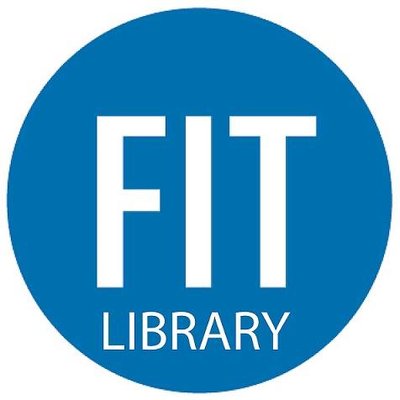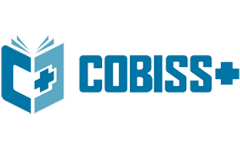A Qualitative Method in Identifying Academic Aspect Element of Academic Enhancement Support for Student-Athlete
DOI:
https://doi.org/10.61841/bn16fy54Keywords:
Academic Enhancement Support, Student-Athlete, Academic AspectAbstract
Student-athletes who are enrolled at the undergraduate level in higher educational institutions in Malaysia have the challenge of raising their academic achievement. A preliminary survey shows that nearly 40 percent of student-athletes have a cumulative grade point average (CGPA) below 3.00. This study aimed to develop an academic enhancement support framework for student-athletes in Malaysian public universities. Problems, in order to improve academic achievement among student-athletes, are due to factors of academic factor that do not support the improvement of academic achievement student-athletes during their study sessions. As a result, studentathletes could not be maintained in the session of study and scholarship, and the implications from the result are they are not allowed to participate in training and also competition. Therefore, the purpose of this study was to explore elements of support that increase academic achievement for students and athletes in aspects of academics. The qualitative research approach involves 12 respondents representing academia, management institutions, and the management of student-athletes to explore elements of support that increase academic achievement in terms of academic areas for student-athletes. This data is collected through a face-to face interview, and the data analyzed based on thematic analysis by using pencil and paper to identify elements of support that increase academic achievement in aspects of academic areas. The result of the analysis found that there are 10 elements in aspects of academic areas that can help increase the academic achievement of student-athletes that enroll in undergraduate programs in Malaysian public universities. Therefore, 10 elements of support are expected to help undergraduate student-athletes at public universities improve their academic achievement.
Downloads
References
[1] Akomolafe, M.J. (2013). Personality Characteristics as Predictors of Academic Performance of Secondary School Students, 4(2), 657–664.
[2] Alder, P., & Alder, P. (1985). From Idealism to Pragmatic Detachment: the Academic Performance of College Athletes. Sociology of Education, 58(4), 241–250.
[3] Alfan, E. & Othman, N. (2005). Undergraduate students’ performance: the case of the University of Malaya. Quality Assurance in Education, 13(4), 329–343.
[4] Ali, N., Jusoff, K., Ali, S., Mokhtar, N. & Salamat, A. S. A. (2009). The Factors Influencing Students' Performance at Universiti Teknologi MARA Kedah, Malaysia. Management Science and Engineering, 3(4), 81–90.
[5] Allen, M. (1997). The academic socialization of intercollegiate athletes. Unpublished doctoral dissertation, University of Connecticut.
[6] Bazeley, P. (2013). Qualitative Data Analysis Practical Strategies. (J. Seaman, Ed.) (1st ed.). London: Sage Publication Inc.
[7] Beamon, K. & Bell, P. A. (2006). Academics versus athletics: An examination of the effects of background and socialization on African American male student athletes. The Social Science Journal, 43(3), 393–403.
[8] Broughton, E., & Neyer, M. (2001). Advising and counseling student athletes. New Directions for Student Services.
[9] Cohen, L., Manion, L., & Morrison, K. (2011). Research Methods in Education (7th ed.). United States of America: Routledge.
[10] Carodine, K. (2001). College student athlete success both in and out of the classroom. New Directions for Students.
[11] Carodine, K., Almond, K. F., & Gratto, K. K. (2001). College students achieve success both in and out of the classroom. New Directions for Student Services, 2001(93), 19–33.
[12] Comeaux, E. & Harrison, C. K. (2011). A Conceptual Model of Academic Success for Student-Athletes. Educational Researcher, 40(5), 235–245.
[13] Diersen, B. A. (2005). Student-athlete or athlete student.
[14] Eitzen, D. (2009). Fair and foul: Beyond the myths and paradoxes of sport. Google Search. Retrieved November 22, 2015,
[15] Feldpausch, B. M. (2013). An Investigation Of Need For Academic Support Programs For Collegiate Athletes. Journal of Chemical Information and Modeling, 53, 1689–1699.
[16] Fortes, P. C., Rodrigues, G., & Tchantchane, A. (2011). Investigation of Academic and Athletic Motivation on Academic Performance Among University Students, 2, 181–185.
[17] Howard-Hamilton, M., & Watt, S. (2001). Student Services for Athletes: New Directions for Student Services.
[18] James, K. A. (2010). Collegiate student-athletes’ academic success: academic communication apprehension's impact on prediction models.
[19] Jensen, U. (2011). Factors influencing student retention in higher education. Research & Evaluation, 4.
[20] Miller, P. S. & Kerr, G. (2002). The athletic, academic, and social experiences of intercollegiate student athletes. Retrieved November 24, 2015,
[21] Rozali, M. Z. & Puteh, S. (2017). Active Involvement of Students in Co-Curriculum (Sports) Versus Generic Skills. Science International, 29(2), 459–464.
[22] Rozali, M. Z., Puteh, S., Yunus, F. A. N., Khan, T., & Khan, A. (2018). Academic Enhancement Support for Student-Athlete in Malaysian Public Universities. Advanced Science Letters, 24(1), 223–225.
[23] Sack, A. (1988). College sports and the student athlete. Journal of Sport and Social Issues.
[24] Shelangoski, B. L., Hambrick, M. E., Gross, J. P., & Weber, J. D. (2014). Exploring the Role of Educational Institutions in Student-Athlete Community Engagement, 17–42.
[25] Shuman, M. P. (2009). Academic, athletic, and career athletic motivation as predictors of academic performance in student athletes at a Division I university.
[26] Tinto, V. & Pusser, B. (2006). Moving from theory to action: Building a model of institutional action for student success. National Postsecondary Education Cooperative (June), 57.
[27] Tudor, M. L. (2014). Predicting student athletes’ motivation toward academics and athletics.
[28] Watt, S., & Moore, J. (2001). Who are student athletes? New Directions for Student Services.
[29] Yelk, T. (2013). Non-cognitive factors affecting student athlete academic performance.
[30] Yusof, A., Chuan, C. C., & Shah, P. M. (2013). Academic Achievement and Sports Involvement of Malaysian University Athletes. Procedia: Social and Behavioral Sciences, 106, 273–281.
Downloads
Published
Issue
Section
License
Copyright (c) 2020 AUTHOR

This work is licensed under a Creative Commons Attribution 4.0 International License.
You are free to:
- Share — copy and redistribute the material in any medium or format for any purpose, even commercially.
- Adapt — remix, transform, and build upon the material for any purpose, even commercially.
- The licensor cannot revoke these freedoms as long as you follow the license terms.
Under the following terms:
- Attribution — You must give appropriate credit , provide a link to the license, and indicate if changes were made . You may do so in any reasonable manner, but not in any way that suggests the licensor endorses you or your use.
- No additional restrictions — You may not apply legal terms or technological measures that legally restrict others from doing anything the license permits.
Notices:
You do not have to comply with the license for elements of the material in the public domain or where your use is permitted by an applicable exception or limitation .
No warranties are given. The license may not give you all of the permissions necessary for your intended use. For example, other rights such as publicity, privacy, or moral rights may limit how you use the material.
















